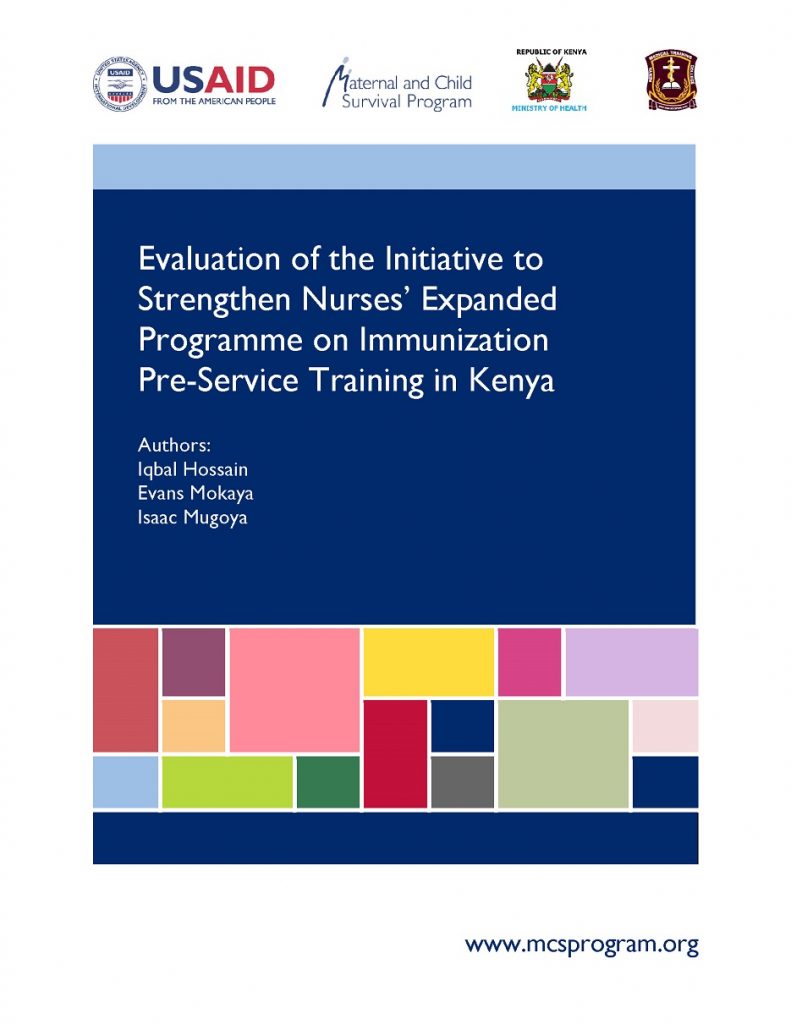
In 2008, the Kenya Ministry of Health (MOH) embarked on a process to strengthen pre-service training for the Expanded Programme on Immunization (EPI) using WHO’s prototype curriculum. Partnering with the WHO, UNICEF and USAID’s Maternal and Child Health Integrated Program (later became USAID’s MCSP), the MOH developed an immunization manual for medical and nursing students, […]
Read More…
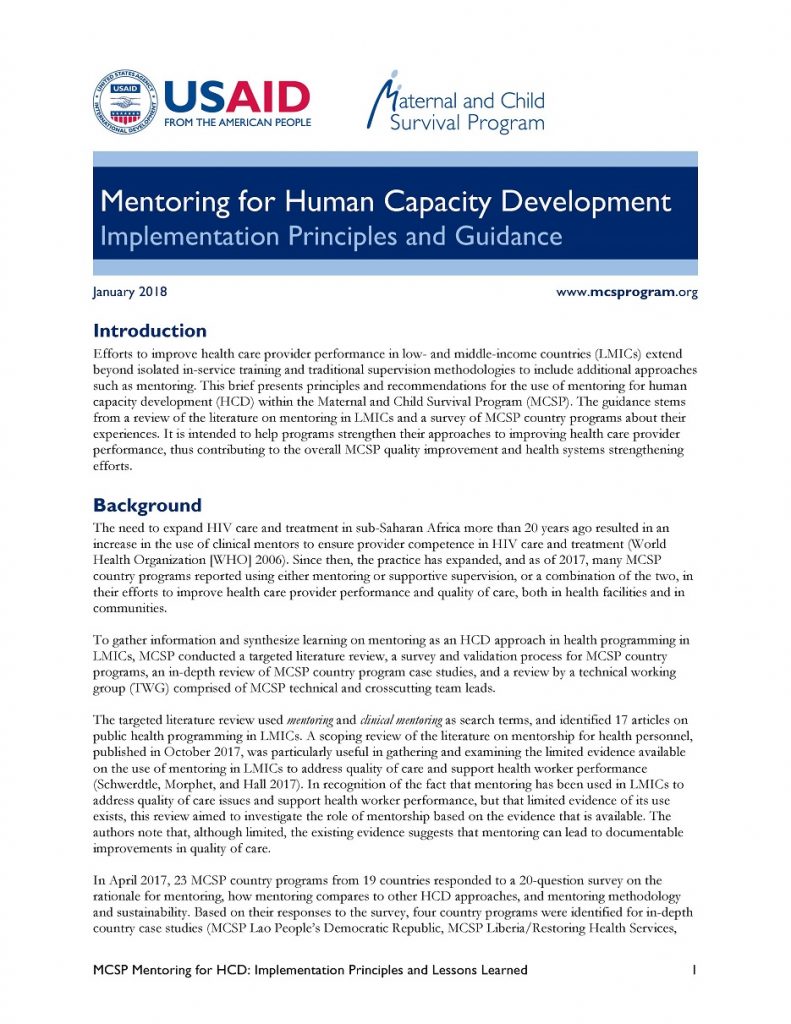
Efforts to improve health care provider performance in low- and middle-income countries (LMICs) extend beyond isolated in-service training and traditional supervision methodologies to include additional approaches such as mentoring. This brief presents principles and recommendations for the use of mentoring for human capacity development (HCD) within the MCSP. The guidance stems from a review of […]
Read More…
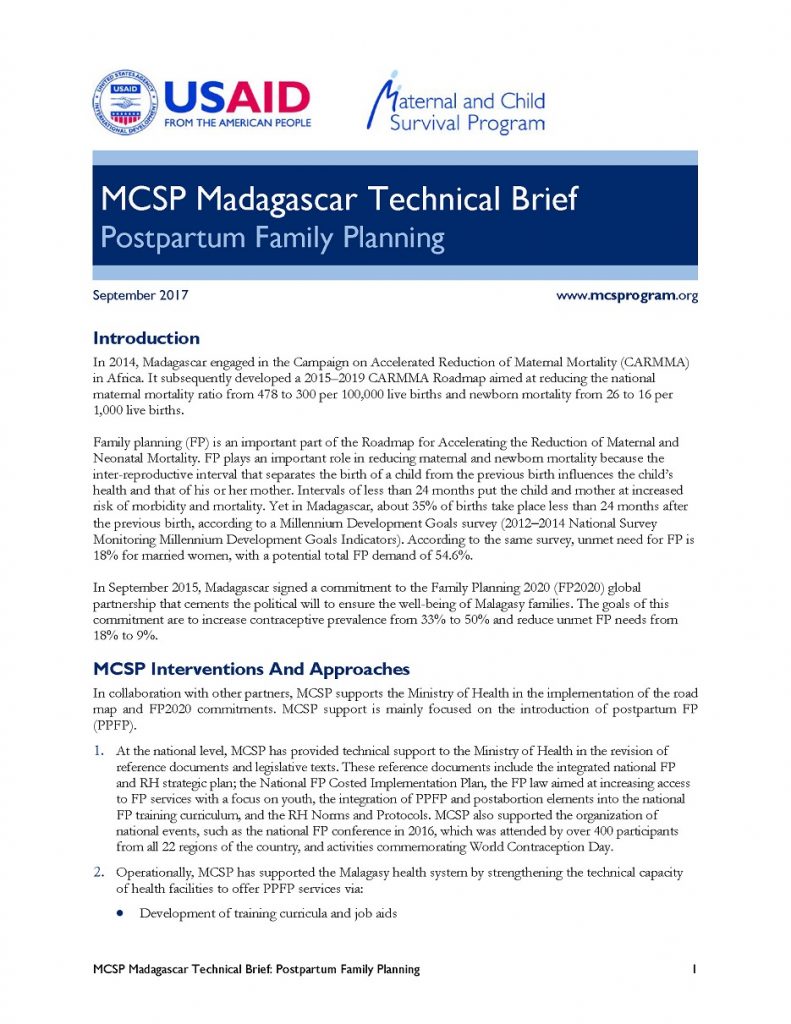
This technical brief describes MCSP’s postpartum family planning support in Madagascar. The project has supported the capacity-building of health facilities in 16 regions by upgrading health worker skills and staffing technical equipment, and discusses the positive results garnered from the work. The brief is also available in French. […]
Read More…
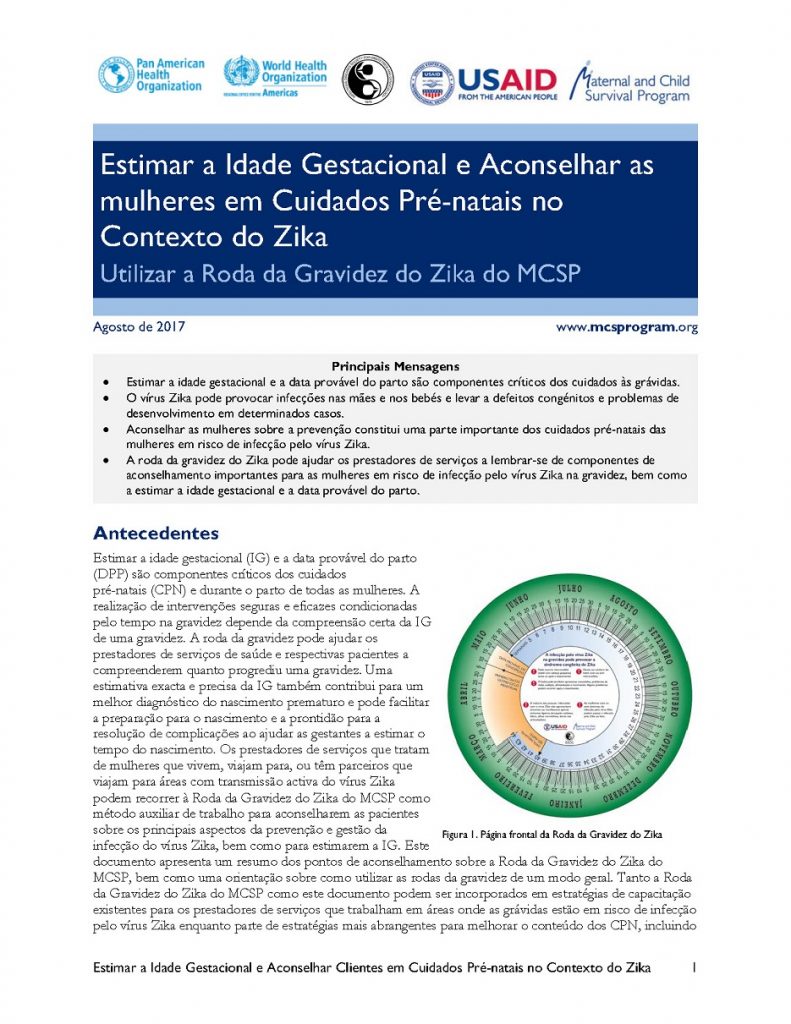
Estimating gestational age (GA) and expected date of delivery (EDD) are critical components of care for all antenatal care (ANC) and intrapartum care clients. The safe and effective delivery of time-dependent interventions in pregnancy depends on having a correct understanding of a pregnancy’s GA. Pregnancy wheels can help health providers and their clients understand how […]
Read More…
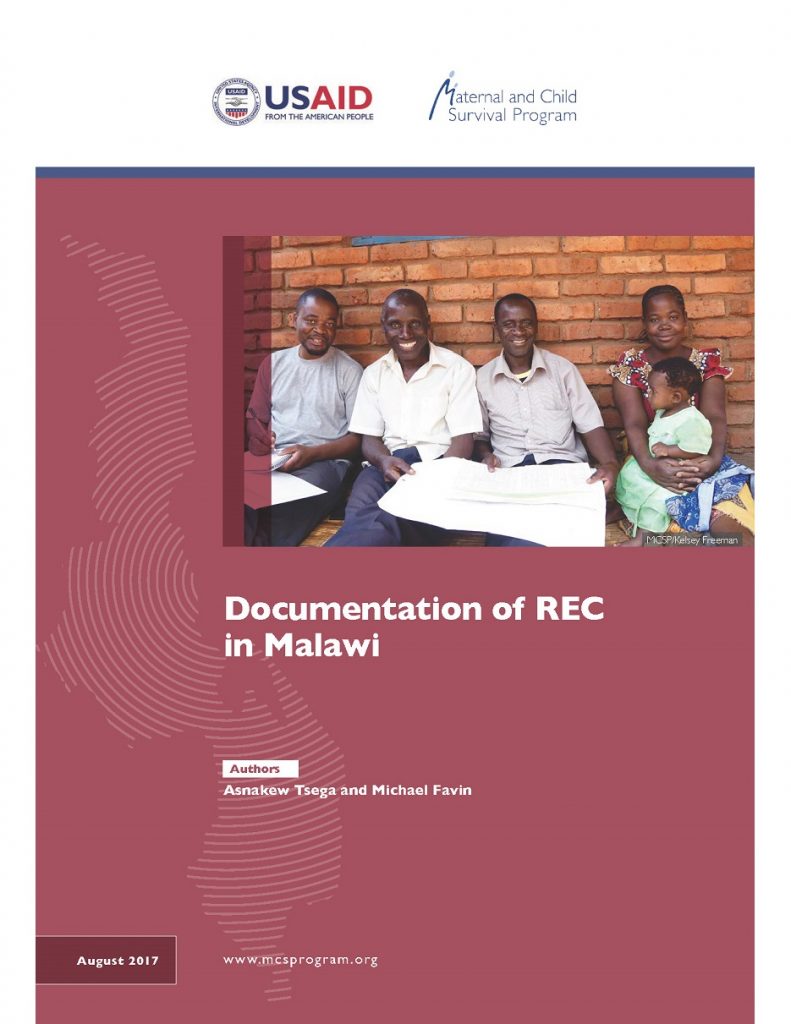
In October 2016, MCSP began its third year of activities in Malawi, with immunization work focusing on collaboration with the Ministry of Health/Expanded Program on Immunization (MOH/EPI) and partners at the national level; and provision of intensive support for implementing the Reaching Every Child (REC) approach in two low-coverage districts, which were selected from among seven districts in […]
Read More…

Each year, malaria in pregnancy (MiP) is responsible for 20% of stillbirths and 11% of newborn deaths in sub-Saharan Africa. MCSP is committed to providing resources and technical assistance to strengthen MIP programs to deliver health impact. In 2016, WHO released Recommendations on Antenatal Care for a Positive Pregnancy Experience. These ANC recommendations should be […]
Read More…
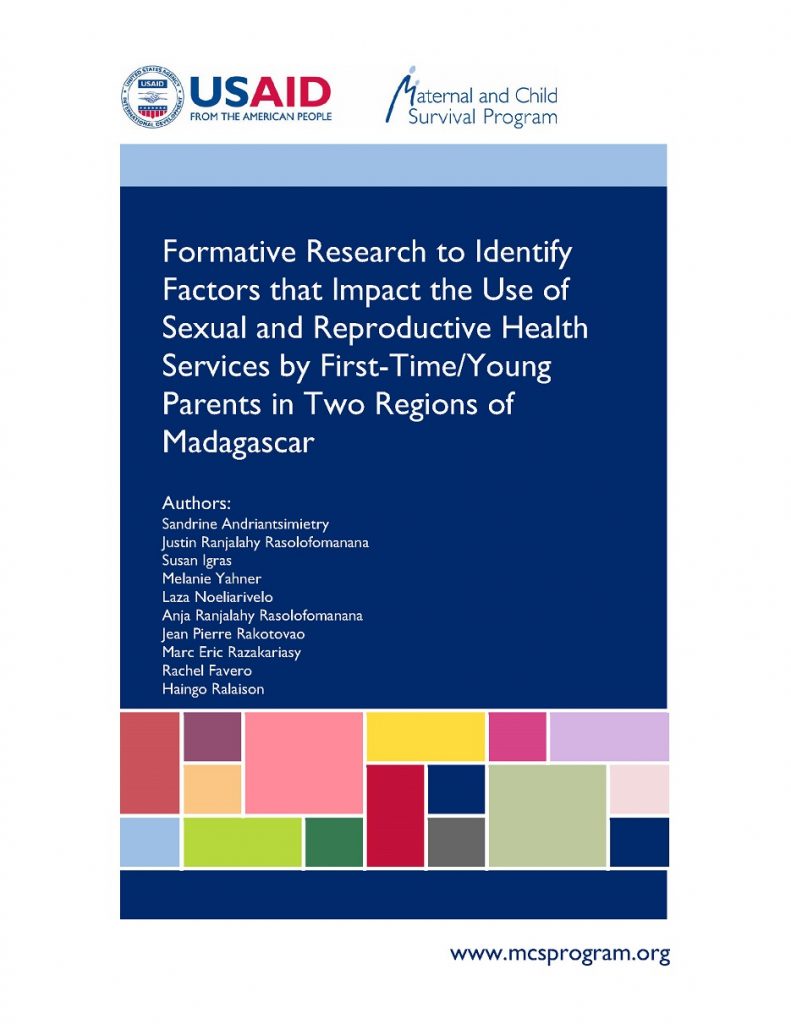
In Madagascar, MCSP is developing and testing an intervention to increase access to and use of essential antenatal care, maternal and newborn care, and family planning services that will create enabling environments and strengthen youth assets, so first-time parents and parents-to-be understand their sexual and reproductive health (SRH) choices and access services that are responsive […]
Read More…
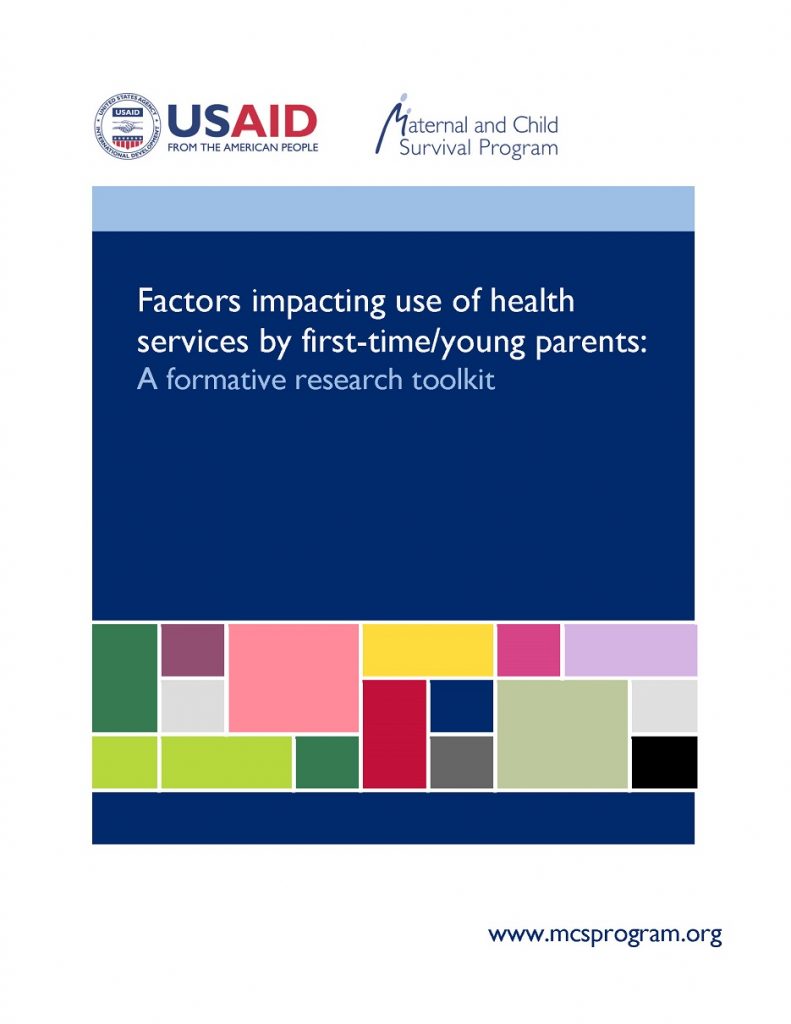
Despite the fact that 13 million births occur to adolescents each year and that early pregnancy increases the risk of adverse health outcomes for mothers and their children, most programs that engage adolescents do not aim to meet the needs of those who have already begun childbearing. First-time/young parents (FT/YPs) are an under-served population with […]
Read More…
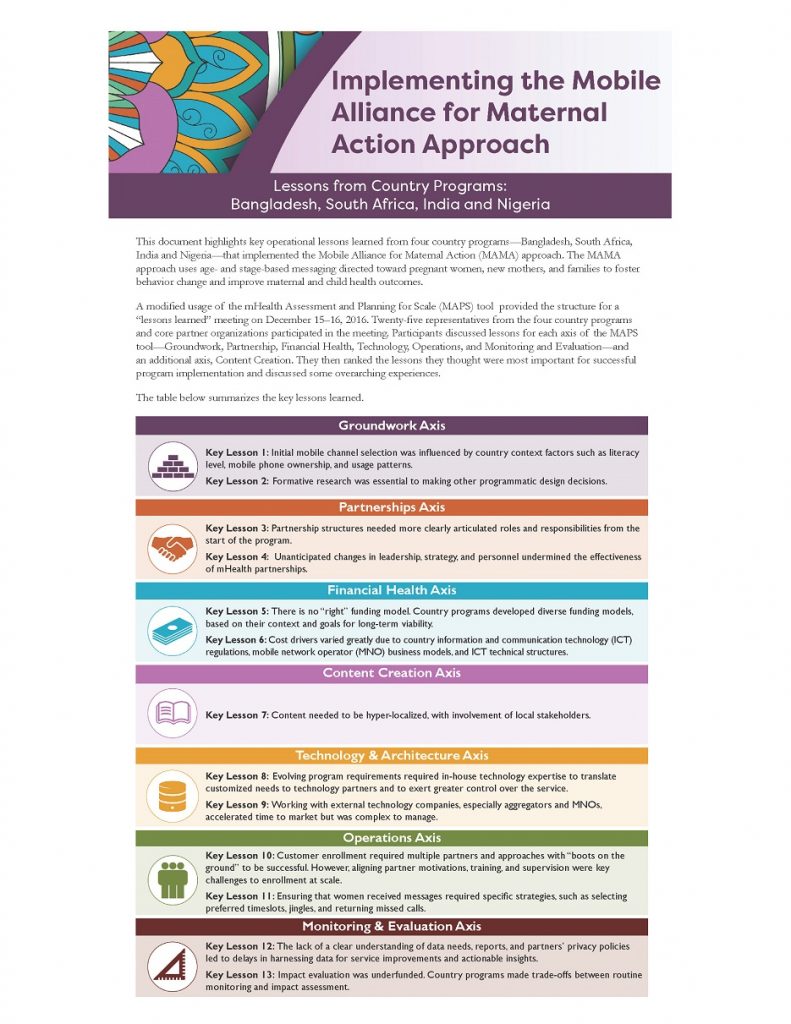
This document highlights key operational lessons learned from four country programs—Bangladesh, South Africa, India and Nigeria—that implemented the Mobile Alliance for Maternal Action (MAMA) approach. The MAMA approach uses age- and stage-based messaging directed toward pregnant women, new mothers, and families to foster behavior change and improve maternal and child health outcomes. […]
Read More…
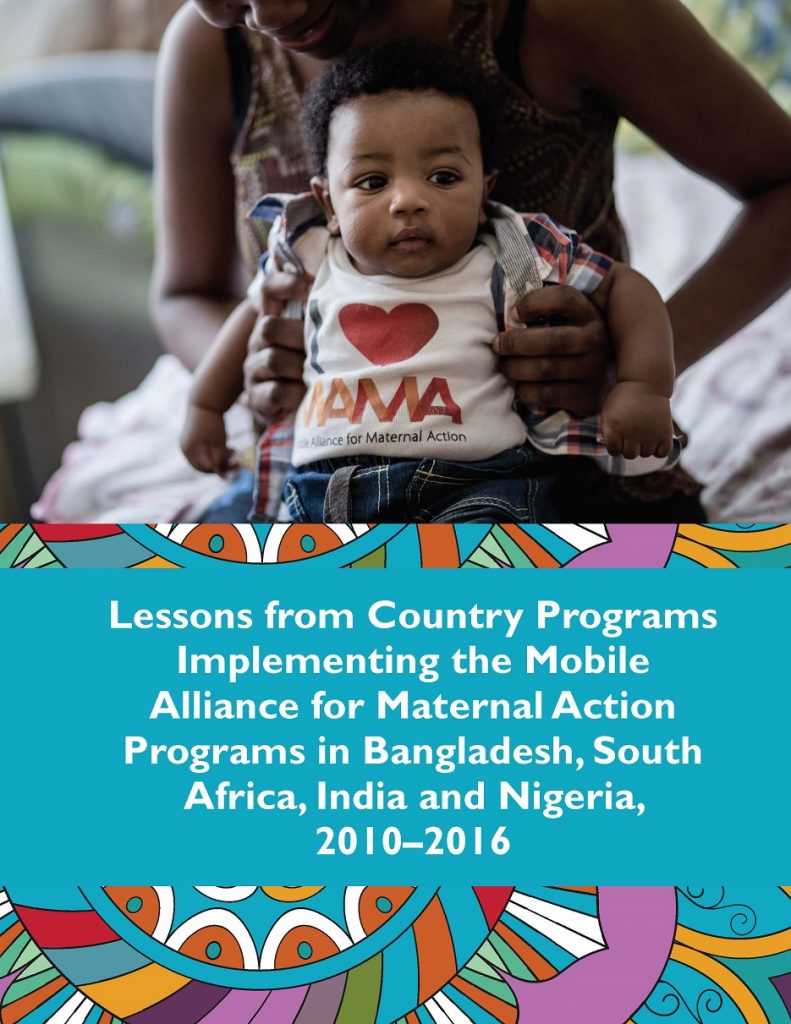
This document highlights key operational lessons learned from four country programs—Bangladesh, South Africa, India and Nigeria—that implemented the Mobile Alliance for Maternal Action (MAMA) approach. The MAMA approach uses age- and stage-based messaging directed toward pregnant women, new mothers and families to foster behavior change and improve maternal and child health outcomes. This report aims […]
Read More…










